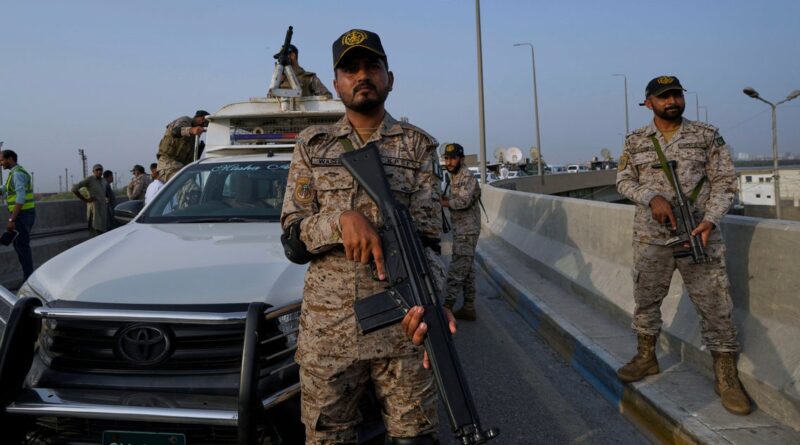Pakistan conducts retaliatory strikes after India fires missiles on its air bases
Pakistan said India fired missiles at three air bases inside the country Saturday but most of the missiles were intercepted and that retaliatory strikes on India were underway. It’s the latest escalation in a conflict triggered by a massacre last month that India blames on Pakistan.
The Pakistani military said it used medium-range Fateh missiles to target an Indian missile storage facility and airbases in Pathankot and Udhampur.
Army spokesman, Lt. Gen. Ahmad Sharif, said in a televised address that Pakistan’s air force assets were safe following the Indian strikes, adding that some of the Indian missiles also hit India’s eastern Punjab.
“This is a provocation of the highest order,” Sharif said.
State-run Pakistan Television said Prime Minister Shehbaz Sharif has convened a meeting of the National Command Authority, the body responsible for overseeing the country’s missile program and other strategic assets.
The Indian missiles targeted Nur Khan air base in the garrison city of Rawalpindi, Murid air base in Chakwal city and Rafiqui air base in the Jhang district of eastern Punjab province, according to the spokesman. There was no immediate comment from India.
Sharif said some of the Indian missiles also went into Afghanistan.
“I want to give you the shocking news that India fired six ballistic missiles from its city of Adampur,” said Sharif. One of the ballistic missiles hit Adampur, the remaining five missiles hit the Indian Punjab area of Amritsar.”
The Indian army said in a statement late Friday that drones were sighted in 26 locations across many areas Indian states bordering Pakistan and Indian-controlled Kashmir, including region’s Srinagar main city. It said the drones were tracked and engaged.
“The situation is under close and constant watch, and prompt action is being taken wherever necessary,” the statement said.
In a statement, the State Department said that U.S. Secretary of State Marco Rubio had spoken with Pakistan Army Chief Asim Munir Friday and “continued to urge both parties to find ways to deescalate and offered U.S. assistance in starting constructive talks in order to avoid future conflicts.”
Tensions between the nuclear-armed rivals have soared since an attack at a popular tourist site in India-controlled Kashmir left 26 civilians dead, mostly Hindu Indian tourists, on April 22. New Delhi has blamed Pakistan for backing the assault, an accusation Islamabad rejects.
On Wednesday, India conducted airstrikes on several sites in Pakistani territory it described as militant-related, killing 31 civilians, according to Pakistani officials. Pakistan said it shot down five Indian fighter jets.
On Thursday, India said it thwarted Pakistani drone and missile attacks at military targets in more than a dozen cities and towns, including Jammu city in Indian-controlled Kashmir. Pakistan denied that it carried out drone attacks. India said, meanwhile, that it hit Pakistan’s air defense systems and radars close to the city of Lahore. The incidents could not be independently confirmed.
India and Pakistan have already fought three wars over the disputed Himalayan region of Kashmir. Both nations claim all of Kashmir as their own territory, but each controls only part of it. Another, northeastern portion of the region is administered by China, which has long been a point of friction between Delhi and Beijing.

